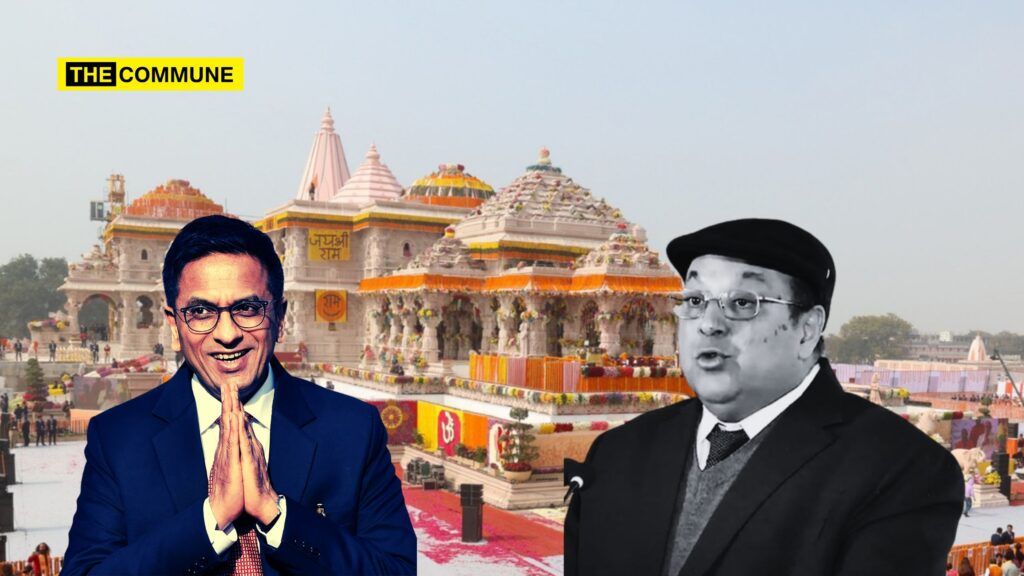Former Chief Justice of India DY Chandrachud recently addressed critiques of the Supreme Court’s 2019 Ayodhya verdict, including remarks by Justice Rohinton Nariman, who termed the decision a “mockery of justice” and that secularism was not given its due at all. Speaking at the Times Network India Economic Conclave, Chandrachud emphasized that judgments, once delivered, become public property and are open to discussion and critique.
Justice Nariman, a former Supreme Court judge, had criticized the verdict for not giving due consideration to secularism. He argued that while the judgment acknowledged the illegality of the mosque’s demolition, it awarded the disputed land in a way he found inconsistent. Nariman also noted that while the court mentioned the structure under the mosque was not Islamic, it stopped short of definitively identifying it as a Ram temple.
Responding to these remarks, Chandrachud acknowledged Nariman’s freedom to critique the decision. “Justice Nariman, whom I respect deeply and count as a good friend, is a free citizen of a free nation. In contrast, I am a disciplined soldier of the institution I have served,” he said. Chandrachud reiterated that it is not the role of a judge to defend or critique a judgment once it has been delivered, adding, “The judgment is now the public property of the nation, and it is for others to critique.”
He addressed the concerns about secularism raised by Nariman, framing them as a testament to the vibrancy of secular principles in India. “One of the critical principles of secularism is the freedom of conscience, and Justice Nariman exercised that freedom through his critique. The fact that people in our society can express such opinions is a reminder that secularism is alive and well in India,” Chandrachud said.
The former CJI emphasized that the Ayodhya verdict was a collective decision made by the five-judge bench, with each judge standing by the reasoning presented in the detailed judgment. He also noted the importance of diverse perspectives. Addressing concerns over secularism being sidelined, particularly coming from a judge belonging to a minority community, Chandrachud said, “Well that’s a perception and there would be other perceptions across the spectrum and that’s why you have a situation where courts decide on issues of the moment the issues, they decide on issues which confront the nation. Citizens are entitled to comment, to critique, to discuss, that’s part of the dialogical process in a democracy. That’s one perspective with Justice Nariman has and I’m sure everyone respects a perspective. but surely that perspective does not reflect a monopoly of Truth. the final word is the word of the Supreme Court.”
(With inputs from LawTrend)
Subscribe to our channels on Telegram, WhatsApp, and Instagram and get the best stories of the day delivered to you personally.

